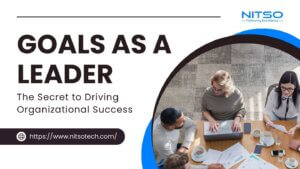How prepared is your organization for the major leadership turnover wave coming? With 10,000 individuals from the post-World War II era retiring daily in India, 50% of companies may lack the leaders needed to navigate growth by 2025. So what’s the solution to ensure business continuity amidst this significant demographic change? The solution to this is prioritizing the strategic development of future leaders right now.
Table of Contents
The Need For Developing Your Future Leaders
A massive wave of Baby Boomers reaching retirement age over the next decade will create an unprecedented deficit of leadership talent across countless industries. Organizations that fail to adequately invest now in developing future leaders will struggle to fill this widening experience and skill gap just as marketplace complexity and competition intensify.
1. Looming shortage of leaders
10,000 employees turn 65 every day in India. This dramatic exit of long-tenured executives and managers, many of whom led companies through decades of prosperity, leaves corporations dangerously exposed. Research predicts over 50% of companies globally risk significant leadership talent shortages by 2025 if they do not accelerate investments in emerging Millennials and Gen Zs.
2. Failure to build a leadership pipeline puts companies at risk
Too many organizations lack robust succession planning and multi-year programs for systematically identifying and grooming high-potential talent. Without strong leadership bench strength and intentional pipelines for developing future executives, unexpected departures or transitory gaps get filled through reactive external hiring at inflated costs. This Band-Aid approach leaves firms scrambling without thoughtful continuity.
3. Investing in next-gen leaders key to continued innovation and growth
Younger emerging leaders tend to be more attuned to rapidly evolving market forces, new technologies, and changing customer expectations. They bring fresh innovative thinking, new skills like advanced analytics fluency, and more diverse perspectives. Failure to integrate Next-Gen Leaders puts companies behind the curve when needing disruption to fuel growth. Properly nurturing the next generation of leaders is what will separate market leaders from laggards.
The data and risks speak for themselves – all organizations must make leadership development and mentoring high-potential talent a top priority to remain relevant and dynamically adapt to accelerating change.
Traits of High-Potential Next-Gen Leaders
Spotting emerging talent with leadership potential is not always easy. While skill sets can be developed, certain innate attributes set Next-Gen Leaders apart. Here are key traits to look for when identifying high-potential employees for leadership grooming:
1. Innate Curiosity and Love of Learning
Top next-gen leaders have a vision. They are big-picture thinkers who spot trends and patterns forming earlier than their peers. Young employees with sharp strategic antennae and the ability to connect disparate dots have essential leadership foundations. Self-motivated curiosity to keep advancing differentiates Next-Gen Leaders.
2. Growth Mindset and Comfort with Change
Future leaders have an affinity, not aversion for change in this age of exponential technological shifts. Where others see uncertainty in industry turbulence, these employees perceive possibilities. Adaptability and agility when facing altering business landscapes will define the next generation of successful leaders.
3. Inquisitiveness and Aptitude for Asking Thoughtful Questions
Strong next-gen leaders have an insatiable curiosity that leads them to ask smart, insightful questions that challenge the status quo. Their probing nature allows them to relentlessly seek truth and learn faster from mistakes.
4. Natural Tendency Towards Collaboration
Leadership today is an outcome of teams, not heroes. Next-Gen Leaders exhibit the emotional intelligence to bring people together for the greater collective cause. They build trusting relationships across functions while dismantling silos. Next-Gen Leaders have a knack for bringing teams together.
Article you might be interested in: Objectives and Goals as a Leader
Best Practices for Cultivating Next-Gen Leaders
Organizations can and should establish formal programs dedicated to identifying and nurturing future leaders. Here are some proven ways to give high-potential employees the opportunities and skills to maximize their leadership capabilities:
1. Providing stretch assignments outside the comfort zone
Challenge Next-Gen leaders by giving them tough assignments that take them out of their daily responsibilities. For example, have an engineer lead a cross-geography project involving multiple functions like Sales, Marketing, and Customer Support. Throwing high-potentials into unfamiliar scenarios forces them to learn new skills and build confidence while solving complex problems.
2. Encouraging work on cross-functional teams
Expose emerging leaders to diverse perspectives by having them collaborate on cross-functional projects. A Finance manager could be assigned to a new product launch team working with R&D and Operations. Bringing next-gen talent together across departments builds valuable teamwork abilities.
3. Creating mentoring relationships with seasoned leaders
Partner Next-Gen leaders with executive-level mentors to share management approaches, industry insights, and leadership strategies. The mentor provides guidance while the mentee gains real-world wisdom they can apply throughout their career. Personalized coaching builds advanced leadership skills rapidly.
4. Sponsoring specialized leadership development training
Investing in formal training gives emerging talent the knowledge and tools to excel as future executives. Send high-potentials to multi-day leadership conferences or seminars focused on strategic planning, leading change, organizational culture, managerial communications and other critical topics.
5. Giving meaningful feedback on performance
Provide consistent, constructive feedback to let emerging leaders know where they are excelling and areas for improvement. Quarterly or bi-annual performance reviews make expectations clear while tracking development areas to strengthen.
6. Offering visibility to key stakeholders
Raise profiles of Next-Gen leaders by having them present strategy plans directly to executives or the board. Gaining exposure to top management allows emerging leaders to showcase their abilities while networking with influential sponsors.
Conclusion
In these riveting times marked by complexity and uncertainty, capable leadership is the rudder that will guide organizations to prosperity or demise. We face both unprecedented threats – widening skills gaps, talent wars, technical disruption – as well as promise, with emerging innovations and new markets daily.
While problems feel plentiful, so too is opportunity for those with courage, vision and focused commitment to developing the next generation of leaders. The winners on the other side of this talent vortex will be those organizations which planted seeds early.
The leadership crisis is coming – will your company have the process in place to weather the storm? The time for intentional leadership succession and forging tomorrow’s executives is now. Lead the future – start developing your future leaders today.
FAQs
What are future leaders?
Future leaders are the next generation of upcoming talent within an organization that exhibit high potential and leadership capabilities that can be nurtured and developed to take on critical roles. Future leaders possess essential traits like strategic thinking, adaptability, and the ability to inspire teams.
What are the 7 core skills of a leader?
The 7 core leadership skills are:
Vision and goal-setting
Decision-making abilities
People management
Communication
Accountability
Critical thinking
Emotional intelligence
Why is future leadership important?
Future leadership is extremely important because organizations today face major leadership deficits with the exit of the vast Baby Boomer experience. Building leadership bench strength through the intentional development of Millennial and Gen Z high-potentials provides continuity, innovation and sustained growth.
How future leaders should be?
Future leaders should demonstrate strategic foresight, comfort with change, a collaborative mindset, communication skills, technical fluency, coaching strengths, and commitment to lifelong learning in order to excel.
What is vision for future leadership?
The vision for future leadership is more agile, empathetic, ethnically diverse leaders who blend technical prowess with human strengths to motivate teams to bring bold ideas to reality. Future leaders, co-create business strategies with cross-functional partners focused on customer-centric solutions.
What makes good leadership?
Good leadership comes from the ability to connect with teams on an emotional level to inspire trust, lead by example, show integrity when facing adversity, take balanced risks, accept accountability for mistakes, and communicate with clarity and compassion.
What is the future skill of a good leader?
Key future leadership skills involve the ability to cultivate a learning organization focused on collective growth, foster a culture of innovation and bridge siloed teams through a shared purpose to spark breakthroughs. Adaptability and leading through ambiguity also are vital future leadership skills.








0 Comments